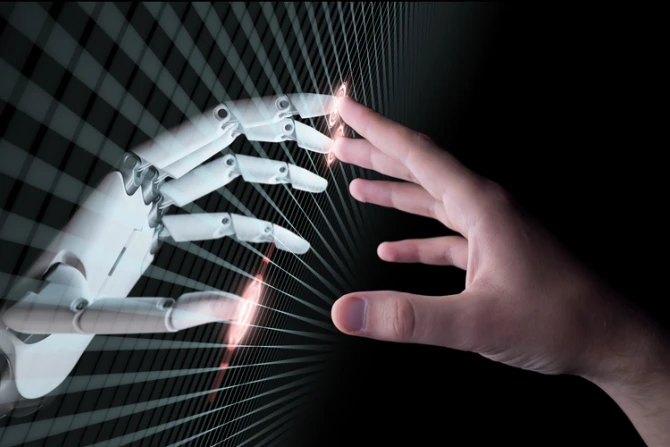Holy Highlights
Archives
Can Robots Have Souls? Why Catholics Must Speak Now About AI
SIGN UP FOR OUR NEWSLETTER
Can Robots Have Souls? Why Catholics Must Speak Now About AI |
As artificial intelligence advances, Catholic leaders urge a moral reckoning on human dignity and technological limits. |
The debate over artificial intelligence has reached a dramatic new level in the United States.
Last week, the administration unveiled an ambitious strategy for global AI leadership, aiming to position American innovation at the forefront of emerging technology.
For many, this signals a new era of possibility — but for the Catholic community, it has triggered a wave of deep concern.
The central question now echoes through parishes and universities: Can robots have souls?
The answer might seem obvious to some, but rapid advances in machine learning, robotics, and now generative AI have blurred lines once thought clear.
What separates humans from machines?
The Catholic Church has long defended the uniqueness of the human person, teaching that each individual is endowed with an immortal soul, a conscience, and dignity bestowed by God.
But as new artificial intelligence systems begin making decisions about jobs, health, and security, many Catholic leaders warn that a clear moral voice is desperately needed.
Recently, local dioceses in cities like Chicago and San Francisco have begun hosting public forums and listening sessions on the ethics of AI.
Priests and laypeople have gathered to discuss not just the power of these new tools, but the risks involved if human values are sidelined.
Here in Los Angeles, a new working group formed this month to explore how Catholic schools can teach students about AI's ethical pitfalls and human limits.
“We cannot allow technology to redefine what makes us truly human,” said one local educator at a town hall last Sunday.
Observers note that as policymakers and corporate leaders race to shape artificial intelligence, churches must not stand on the sidelines.
This moment, many believe, is a clear crossroads: Either we insist on the sacred dignity of human life, or risk a future where machines shape morals and priorities.
The urgency is real.
In recent months, new AI-assisted surveillance programs have been quietly piloted at local airports and hospitals, sparking worries about privacy, bias, and control.
Catholic ethicists are calling for immediate action: open, public debate on where artificial intelligence belongs — and where it does not.
“God entrusted creation to our care, not to algorithms,” one bishop recently said.
The Catholic tradition has survived for centuries by adapting to change while defending human worth.
Now, more than ever, its teachings are needed to guide a world on the verge of technological transformation.
Can robots have souls?
The consensus in church halls is clear: Only human beings, made in God’s image, possess a soul.
But if Catholics remain silent as artificial intelligence accelerates, the world risks forgetting what it means to be fully human. |

